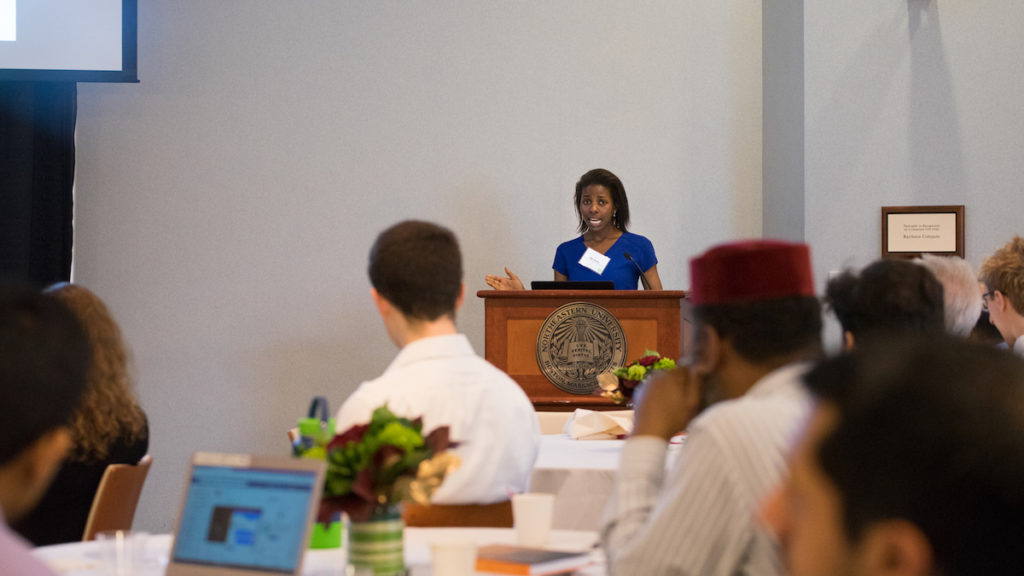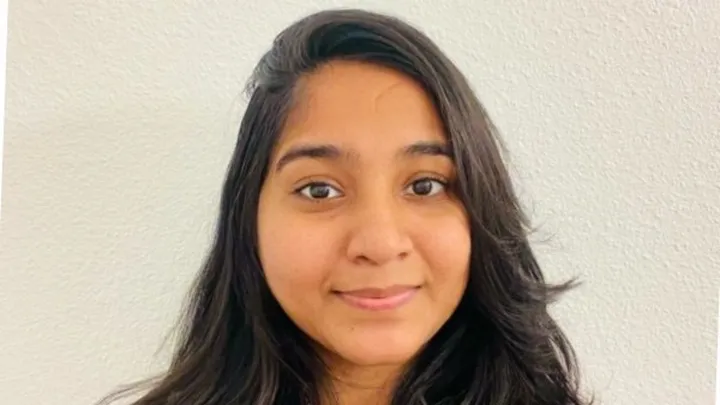By Hugh Shirley, news correspondent
The fourth annual Northeastern Global Summit focused on the challenges and opportunities of sub-Saharan Africa’s emerging economy during a series of speeches Saturday in the Raytheon Amphitheater.
Three speakers and a panel discussed this year’s theme, “African Ingenuity: Infrastructure and Beyond,” during the three-and-a-half hour event. The audience of approximately 30 people attended to learn about businesses in sub-Saharan Africa, but the focus of the talks expanded beyond investing and startups to discuss social impact and change.
“I don’t think everyone should go into business. We’ve got enough rich people in the world,” Toyosi Akerele-Ogunsiji, panelist and honoree of the Top 100 Young Leaders of Nigeria, said in an interview with The News. “We need more people that are doing the work of impact.”
The Emerging Markets Club hosted the summit, which was supported by the D’Amore McKim School of Business, the Center for Emerging Markets and a $15 cost for attendees.
Speakers and panelists talked about the challenges of establishing and running businesses in sub-Saharan Africa.
Speakers were Iheanyi C. Egbuta, Mary Kiarie and Ted Giletti and panelists were Akerele-Ogunsiji, Damilola Junaid and Lucas Lieberman, all of whom share backgrounds in entrepreneurship, business and finance in Africa.
One of the panelists, Lieberman, is a Northeastern third-year international business major. He is the chief financial officer of Masiphumelele Community Innovations (MCI), a company that provides loans to entrepreneurs in Cape Town, South Africa, and aims to give start-ups the chance to grow in an emerging economy.
“We could provide a service to help these people help themselves” Lieberman said. “One way we can help them do that is by bringing financing and business training that we get at Northeastern.”
Social entrepreneurship, or using start-ups to solve social issues, was a key topic throughout the summit. Akerele-Ogunsiji said it is important for students to pursue careers in social entrepreneurship because the world is breaking apart in the face of strong inequalities in education and income.
“Social entrepreneurship gives you the opportunity to be part of the movement that solves those problems,” she said.
Junaid, founder of the ARISE Africa Foundation – a sexual health advocacy organization in Nigeria – emphasized the connection between traveling and understanding other societies and social entrepreneurship during her discussion at the summit.
“It’s easy for people to get comfortable because life is good,” Junaid said. “If you’re thinking about social entrepreneurship, you need to travel. You need to get out more and expose yourself to what’s going on in other parts of the world.”
Future entrepreneurs looking to grow in emerging markets should work to better understand the global society, said Egbuta, an innovation strategies and entrepreneurship expert from Nigeria who gave a speech about the challenges of emerging markets.
“America is not the world,” Egbuta said. “You need to see the world.”
The Emerging Markets Club hosted the summit because inspiring social change through entrepreneurship is very important for Northeastern students, said Ravi Ramamurti, the club’s faculty advisor and an international business professor.
“Social entrepreneurship is very important for our students,” Ramamurti said. “They want to be involved with solving problems.”
Emerging markets make up 85 percent of the world’s population, Ramamurti said, so it is important to teach business students how to reach those markets.
Emerging Markets Club President Morenike Lukula, a third-year international business major, hoped attendees would understand that Africa is a diverse continent and holds a lot of potential for economic development.
“Africa is not a country; each country itself has such a different atmosphere,” Lukula said. “I think it can be sometimes overwhelming coming from a Western standpoint to not really know anything about what life is really like there.”
Lukula said the first summit in 2014 was held before the founding of the Emerging Markets Club. Past summits have focused on the 2008 financial collapse, emerging markets worldwide and technology. This year, Lukula said the topic was chosen to fill a gap that club members saw in the international business curriculum.
“Africa is not something commonly discussed in our international business classes,” Lukula said. “We thought it would be a really unique and exciting opportunity for students to learn about this area that’s not normally covered.”
Photo by Alex Melagrano









